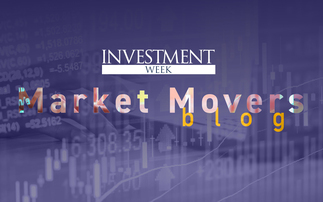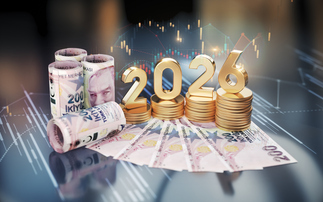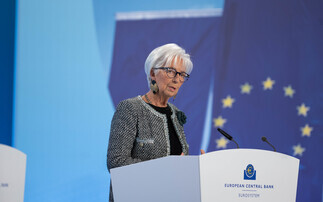
David Herro, Co-CIO – International Equities at Harris | Oakmark, an affiliate of Natixis IM
When it comes to analysing markets, David Herro, Co-CIO – International Equities at Harris | Oakmark, has seen it all. That said, the 2025 season is something different. After all, a lot has changed in a short space of time. Just compare what institutional investors told us were their top portfolio risks in November 2024 (valuations and interest rates) with what wealth managers said in January 2025 (volatility and inflation). What could have possibly changed since October 2024? And how does this year's volatility change conventional wisdom on value investing?
In this Q&A, David Herro answers questions based on some of the responses to our recent Individual Investor Survey1, to see if investor expectations align with our experts' perceptions of stock markets.
With 70% of investors that we surveyed saying the world feels unstable and they're worried about their finances, many investors appear to be lost – indeed, almost a quarter (23%) of those surveyed say they don't know what to do. What would you say to convince investors to stay invested?
I always laugh when I'm watching CNBC or Bloomberg and they say it's so unpredictable today. It's unpredictable every day. We don't know what's going to happen in the future. First and foremost, people have to realise that unpredictability is just part of the environment. There are different things that cause this unpredictability. There are wars, there's energy policy, there's interest rate policy, there's natural disasters, there's pandemics, there's trade war. We are constantly in a period of flux and uncertainty.
How do we deal with this as investors? When we address this with our clients, we say think like an investor and not like a trader. What is the difference between the two? A trader is trying to guess price movements and then play what their anticipated belief is on that price movement. For a trader, volatility is the enemy. So, they're trying to play a short-term trend.
On the other hand, an investor steps back and identifies an undervalued asset and invests for the long term. When we invest in businesses, we're investing in assets that have long time horizons. We're not viewing our investments as trades. We're viewing them as long-term investments.
To me there are four keys to convince investors to stay invested. Number one, think for the long term – think as an investor and not as a trader. In this way instead of being jerked around by volatility and uncertainty, investors have the potential to profit from it. The short-term price movement gives an investor an opportunity to position him or herself for longer-term outperformance.
Number two, stay diversified. For the past ten years, ending December 2024 in equity markets, it didn't pay to be diversified. You just put your money in the US market, specifically the Magnificent 7 stocks, and it all worked. In the 1980s, similarly, you put your money in Japanese stocks and it all worked.
But it works until it doesn't. And historically, the longer it takes for the fundamentals to assert themselves, the bigger the adjustment back will be. What we've seen as an example in the past ten years in global equity markets is an unsustainable interest in US equities. US stocks account for over 70% of global equity indices.
In essence, being underweight US was a losing proposition. Global equity ex US performed around 5% for those ten years, and the US did about 13%, so around 800 basis points per year over ten years. Now the S&P 500 is near flat this year and international indices are up almost 20%. So, historically speaking, it pays to be diversified. It might work over the short and even the medium-term, but eventually prices and value catch up.
Number three, macro environments are exogenous. There's nothing you could do about this. To go back to point one: think long term and take advantage of this. Investors have to realise to separate what they can do, what they can't impact, and not to fret over what is exogenous, what is given to them, but to try to take advantage of the situation.
And number four, you can't ignore the price of assets – especially if you're an investor. If you're a trader, who cares about the price? All you care about is movement. In our view, the value of any asset is a present value of its future cash flow streams.
Even though something might look persistently underpriced, if the cash flow stream keeps going up, we think it often makes sense, to stay involved because, again, eventually fundamentals do assert themselves. Don't play every price movement, look at the price of assets. Try to take advantage of not where the money was, but where the money will be going. A core investing belief of ours is that money will flow ultimately to where cash flow yield is.
The price of the asset is determined by cash flow streams, whether we're talking about a stock or a bond, or a property. And the price is ultimately determined by the rental stream, the net income stream, the interest stream, whatever it is. When we get hooked up to the trader mentality, we often just are blinded by movement and not by underlying intrinsic value.
Has your view of international equities changed since the Trump tariffs have come into effect? Do you see it as being a boon for flows into European equities in particular?
For Europe, which has been abandoned by global investors, tariffs have been a wake-up call to become more self-sufficient, whether it be defence, whether it be monetary policy, whether it be the bond market. The tariff announcements gave impetus to European policymakers to react.
The German election was another strand of evidence that business as usual in Europe really is not a winning strategy. They need to take a different tack. And I think we do see this slowly happening. I believe European assets, which have been ignored for the better part of a decade or two, will finally go up.
When you look at the valuation differentials that exist between European stocks and US stocks, we think there's still plenty more room for improvement. Don't forget the dollar has been on a huge bull run since 2014, which to me proves unsustainable ultimately. Because the dollar went from being measurably undervalued in 2014 to being measurably overvalued here in 2025, eleven years later.
Disclaimer
1 Source: Natixis Investment Managers, Global Survey of Individual Investors, conducted by CoreData Research in February and March 2025. Survey included 7,050 individual investors in 21 countries. https://www.im.natixis.com/en-intl/insights/investor-sentiment/2025/individual-investor-survey
Marketing communication. This material is provided for informational purposes only and should not be construed as investment advice.
The analyses and opinions mentioned above represent the author's point of view. They are issued as of this document and are subject to change. They cannot be interpreted as having any contractual value. Views expressed in this article as of the date indicated are subject to change and there can be no assurance that developments will transpire as may be forecasted in this article.
All investing involves risk, including the risk of loss. No investment strategy or risk management technique can guarantee return or eliminate risk in all market environments. Investment risk exists with equity, fixed income, and alternative investments. There is no assurance that any investment will meet its performance objectives or that losses will be avoided.
investments. There is no assurance that any investment will meet its performance objectives or that losses will be avoided.
DR-72341












